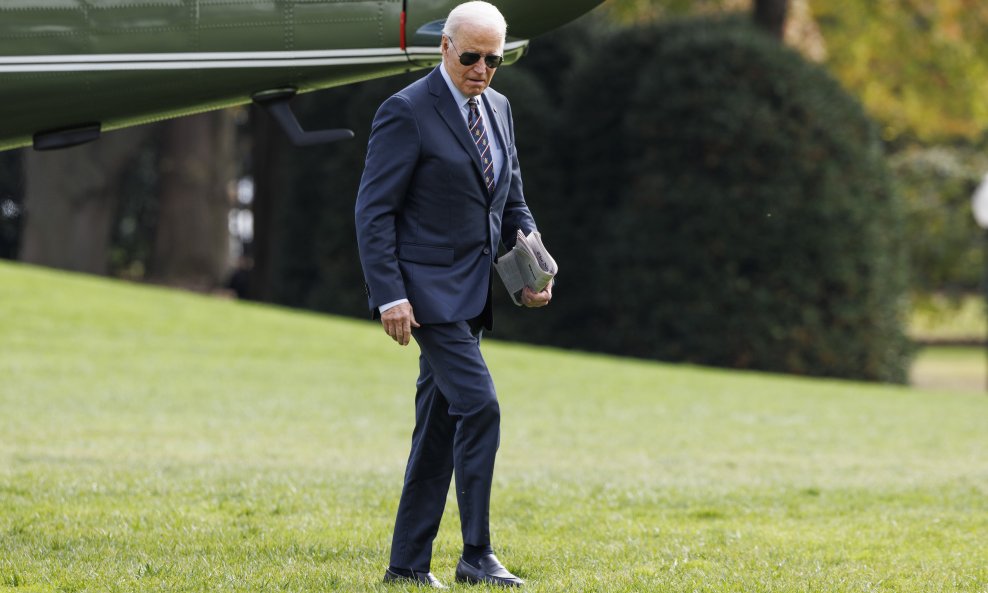 Donald Trump, the perennial comeback figure of American politics, is once again poised to reenter the White House – but this time, under Biden’s invitation, not his own terms. As tradition would have it, Biden has invited Trump for a symbolic meeting to mark a “smooth transition of power,” a gesture that sounds civil but carries layers of political calculation. Trump’s supporters are already questioning why he would entertain this invitation from a man whose administration and allies have relentlessly demonized him. The optics of this meeting are fraught: a handshake with Biden could signal weakness to Trump’s base, casting a shadow over his return to power.
Donald Trump, the perennial comeback figure of American politics, is once again poised to reenter the White House – but this time, under Biden’s invitation, not his own terms. As tradition would have it, Biden has invited Trump for a symbolic meeting to mark a “smooth transition of power,” a gesture that sounds civil but carries layers of political calculation. Trump’s supporters are already questioning why he would entertain this invitation from a man whose administration and allies have relentlessly demonized him. The optics of this meeting are fraught: a handshake with Biden could signal weakness to Trump’s base, casting a shadow over his return to power.
Trump has not only been a lightning rod for criticism but has faced an onslaught of public denouncements from Biden and the Democratic Party, branding him as a polarizing threat to American unity. His supporters see this not as politics-as-usual, but as part of a sustained campaign to delegitimize Trump’s vision, character, and base. And, for a president who prides himself on authenticity and defiance, a photo-op with Biden may be a step too far. Accepting this invitation risks undoing years of carefully cultivated populist narrative — one where Trump is the insurgent outsider, immune to the seductive traps of Washington pageantry.
Furthermore, for Trump’s supporters, Biden’s invitation reeks of hypocrisy. The same administration that labeled Trump as an existential threat to democracy is now keen to share a civil stage with him. This isn’t merely a cordial invitation; it’s a bid to smooth over a political history laced with hostility, to cast Biden as a gracious peacemaker. But those attuned to Trump’s experiences know that Biden’s words and actions have consistently painted Trump not merely as a political opponent, but as someone beyond redemption. And as if that weren’t enough, Trump has survived two attempts on his life, a chilling reality that his supporters link to the political climate fostered by years of incendiary rhetoric. Biden’s “olive branch” might be viewed as more PR than genuine bridge-building.
There’s another angle to this: Biden’s invitation could serve as an attempt to reframe his legacy, an opportunity to rewrite his role in one of the most contentious political epochs in American history. Biden’s administration will undoubtedly go down in the annals as one marked by intense polarization, with both sides accusing the other of grievous wrongs. Trump has become the face of populist rebellion, and the Democrats’ repeated attempts to “cancel” him, as many see it, will be remembered. Accepting Biden’s invitation could give the outgoing president an opportunity to rewrite this divisive narrative, casting himself as the figure who “rose above” the chaos.
For Trump’s base, however, this “smooth transition” isn’t a unifying gesture but a mechanism for erasing the stain of political hostility. To them, this isn’t an olive branch; it’s an attempt by Biden to step back from the rhetoric and actions that have defined his administration’s stance toward Trump. That’s not something Trump’s supporters are eager to forgive or forget. In fact, the very fact that Biden’s camp feels the need for this meeting underscores a glaring truth: Biden wants to soften his image and shore up his legacy, to be seen not as a figure of division but one of reconciliation. Trump’s participation in this spectacle could diminish the very narrative that fueled his resurgence.
If Trump rejects this invitation, he reaffirms his commitment to his supporters, reinforcing the idea that he remains the authentic outsider, the man who refuses to bend to political theatrics. After all, in Trump’s world, his power lies in his independence, in his refusal to engage in the symbolic gestures that Washington lives for. By declining, Trump would send a clear message that he remains unyielding, unwilling to participate in a stage-managed spectacle that does little more than give Biden a chance to sanitize his own record.
Ultimately, this choice is as much about legacy as it is about optics. By standing his ground, Trump can craft his own chapter in history – as the figure who rejected the token invitation from a president who once sought to obliterate his legacy. This isn’t just another transition of power; it’s a battle over the story of modern America. And if Trump stays true to his brand, he’ll do so on his own terms, without the trappings of a stage set by the very establishment he’s spent years dismantling.
Ivan Urkov l poskok.info